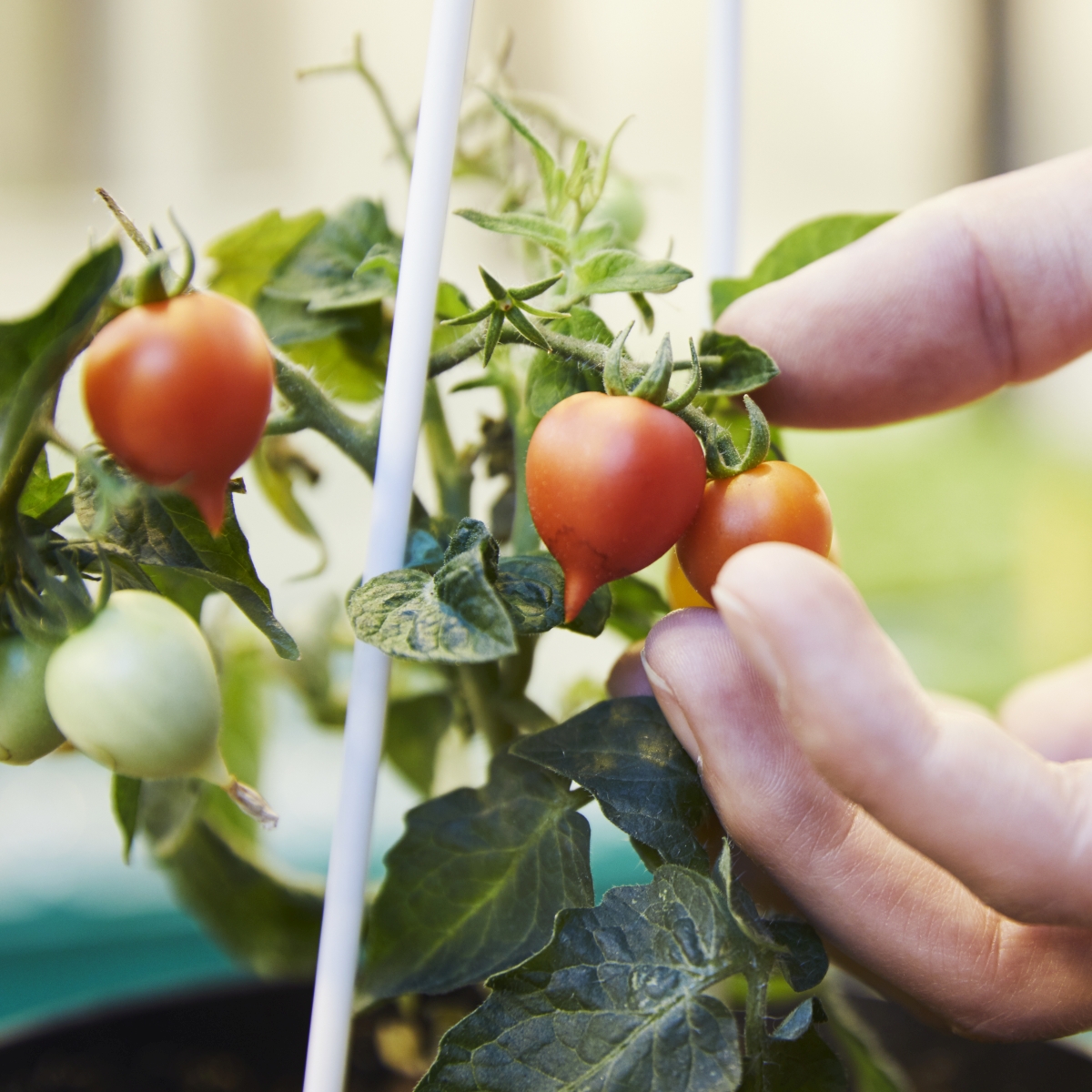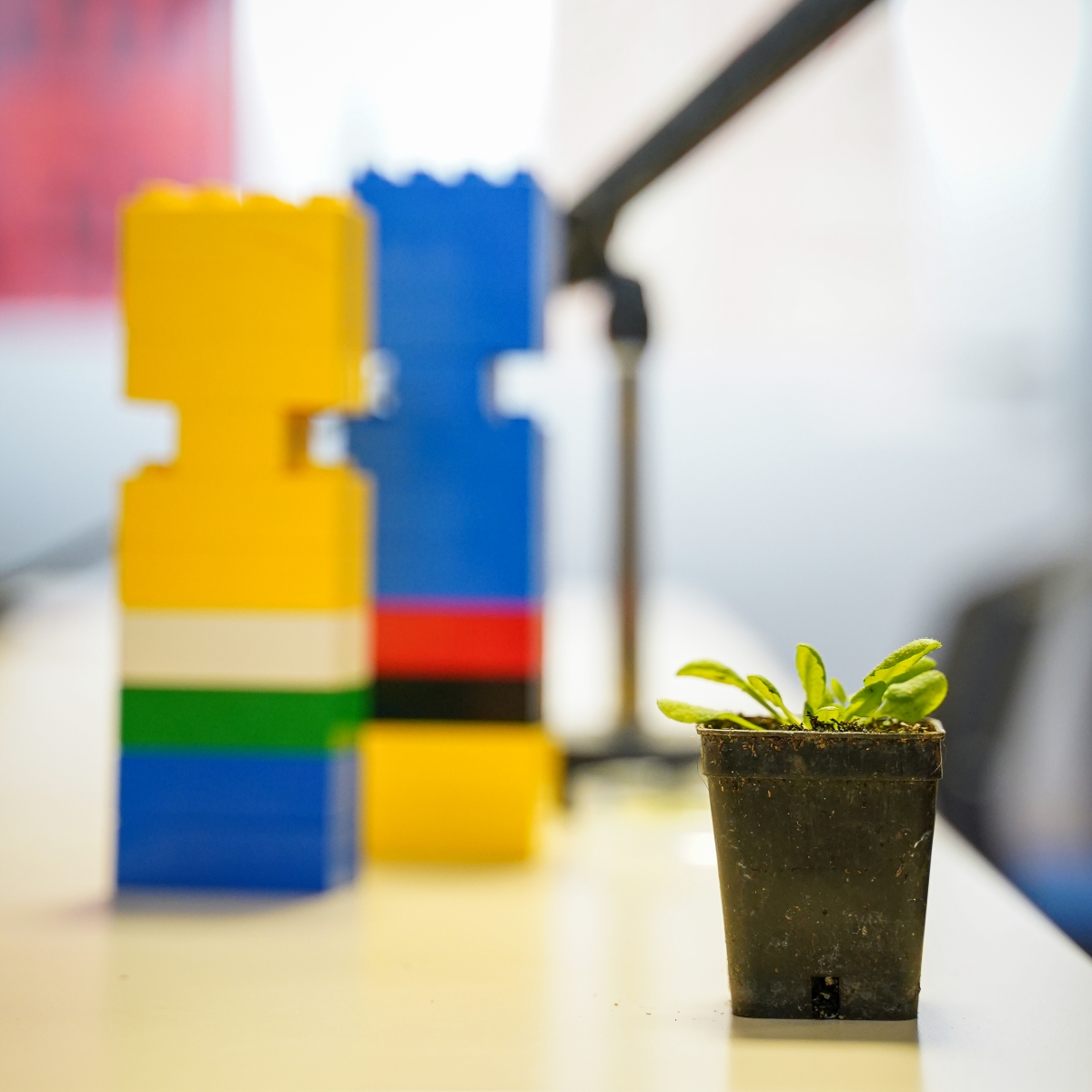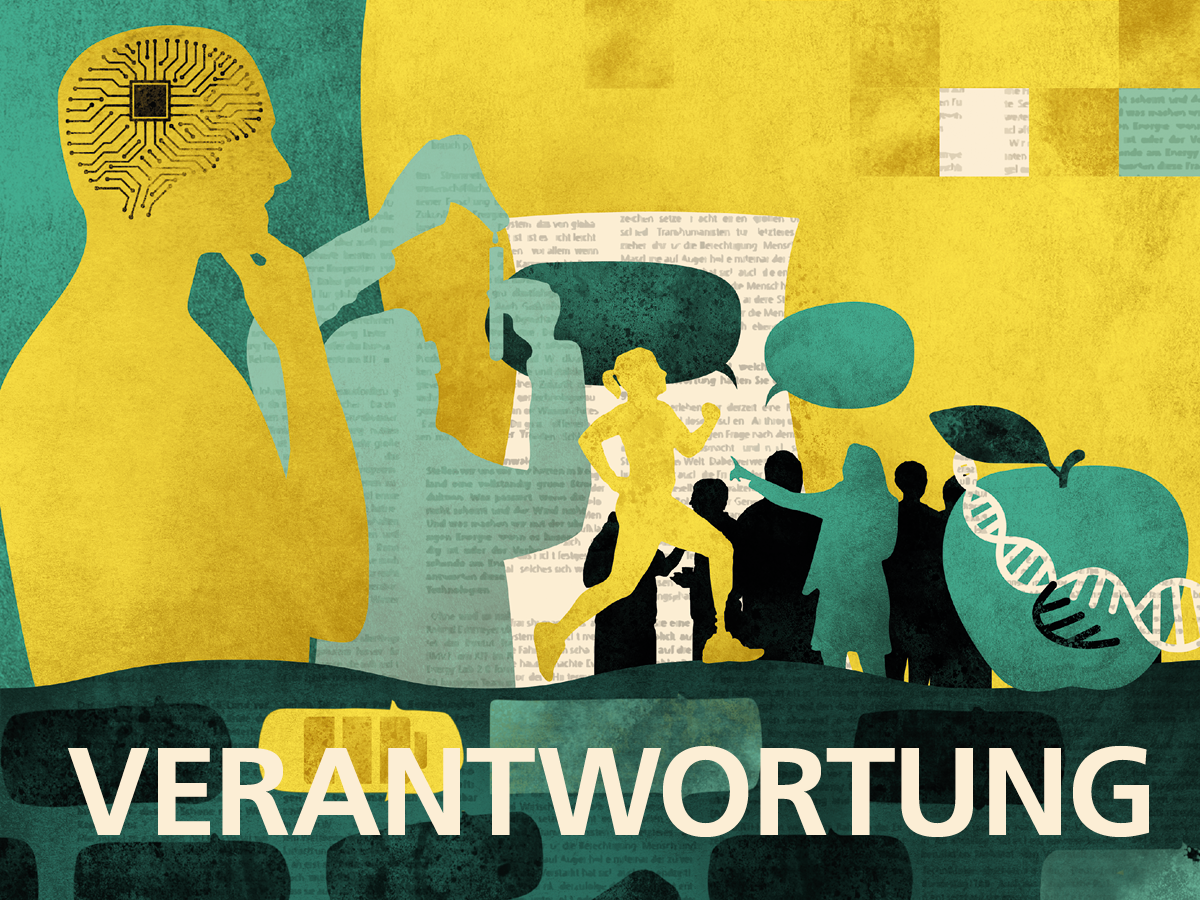"No Monster Has Ever Emerged from a Plant"
Professor Holger Puchta changes the genes of plants as if they were Lego bricks. As a globally recognized pioneer of genetic engineering, the Head of KIT’s Joseph-Gottlieb Kölreuter Institut for Plant Sciences is helping to make fruit tastier and to secure future grain harvests. What drives him – and what stops him?
KIT: How are you, Mr. God?
Puchta: (Laughs) Why Mr. God?
Don’t you play God with the CRISPR/Cas molecular scissors?
This is a wrong understanding of what happens in nature. The public often feels that genetics is absolutely static. But since Darwin and the Theory of Evolution, we know: Only mutation and selection will create something new and better. Genes by nature are always changing. With the CRISPR/Cas molecular scissors, we can make certain processes more targeted or accelerate them, but always within the framework of existing biology. That is why I do not feel as if I were God, of course!
But in 2023, you are doing things that never happened before over millions of years.
Let me give an example: We have to urgently reduce pesticide use in agriculture. For this, we need plants that are resistant to pathogens like mildew. Some cereal crops are so by nature. Now, it is possible to study where this mildew resistance is located in their genome. Then, we can apply this finding to other cereal crops using the molecular scissors and create mildew-resistant wheat. Hence, we are doing something new, but there have already been similar changes in nature. In this way, the world can be “made better” in a very concrete way.
There are two sides to responsibility: With the gene scissors, you want to make the world a little “better.” And there is the responsibility for the results achieved. However, these cannot be predicted reliably by definition. How do you deal with that?
This situation happens very often in science. Thirty years ago, I was the first worldwide to start working with molecular scissors. Nobody could imagine that it is now possible to change nearly any points of genomes of nearly any organisms on Earth. At that time, it appeared completely mind-blowing.

Pioneer Holger Puchta and his research in the "KIT Experts" portal.
Read the Expert PortraitThat’s it. And how can you take responsibility for what happens afterwards?
We have to distinguish between ethics and facts. In accordance with my scientific world view, which is based on facts and experiments, I can say very clearly whether a technology is dangerous. The gene scissors are not: They are safer than classical mutagenesis that is presently being applied in agriculture. Meanwhile, we are able to analyze the genome with modern technology and to check what we are changing. With CRISPR/Cas, we can generate a single selected cut.
For comparison: Radioactive irradiation of plants, which has been carried out for 70 years now to produce e.g. short cereal crops for pasta or beer, induces 10,000 uncontrolled mutations in a plant. So, I can definitely take responsibility for the results of our work, but you also have to make it clear where the limits are.
What is the limit for you?
For me, intervention in the human germ line is a limit.
You are working with plants. Don’t you see any ethical limit for your work?
(Loud laughter). It is much easier to experiment with plants than with animals. I see no moral problems in working with plants. I do these experiments because I do not see any incalculable risks and because the advantages outweigh any possible disadvantages.

In the podcast "Nachgefragt", biologist Michelle Rönspies talks about current genetic research.
Listen nowWhat do you think of the precautionary principle in this context?
We all know that any technology is associated with risks. But the solution is not to do without these technologies when they can help us solve major problems of humankind. And this is what the present discussion of the molecular scissors is about. We can reduce pesticide use and make plants more resistant to heat and salt stress, which means that less fertilizer, land, and water are needed. Why shouldn’t we do this when we have a technology that is completely safe from the scientific point of view and that is applied all around the world, except for Europe?
Big companies have used genetic engineering to maximize their profit at the expense of farmers, such as Monsanto in India. Don’t you have a responsibility in this context?
No. The idea of Monsanto primarily has nothing to do with genetic engineering. Such reckless practices already existed in the past. Long before genetic engineering, hybrid technology was used to cross two species to increase the harvest in the first step. But if you do not know what happens in agriculture, you may have the impression that genetic engineering brought all evil things into the world. This is entirely wrong.
Do you feel a responsibility to all those starving people when securing harvests worldwide by genetically edited plants?
Again, I do not feel as if I were Jesus …

The issue 2/2023 of lookKIT focuses on the topic of responsibility in research and innovation.
Read MagazineNeither God nor Jesus!
…. who alone could change everything. I see my moral obligation in my work in the lab and in the discussion with the public in order to enable use of these technologies for more sustainable agriculture. I am convinced that communication is one of the core tasks of science and that researchers who are developing these technologies are best at understanding and explaining them.
You are facing a big task. In a representative July 2022 survey, 65 percent of people in Germany were against genetic engineering.
It is okay to take a critical view of this technology. However, it is important for us to discuss and to try to convince the public. And the attitude appears to change. In the past, opposition was much higher.
You said that any technology is associated with risks. Which risks are associated with CRISPR/Cas scissors?
I can never exclude that random mutations in the field cause something that will lead to certain effects in interaction with a second mutation. But we know from hundred years of species cultivation that no monster has ever emerged from a plant. If something strange would happen, plants will mostly die. And it is possible to control in advance the entire genome sequence in the lab. Any plants with an additional undesired gene modification can be thrown away. This is something we can control.
When companies can make money, however, many of them tend to forget about controls.
That is right. Together with the German Leopoldina Academy, I have formulated recommendations for politics as to which rules we should adopt for the use of gene scissors. Whether politicians listen to these recommendations or not is another story. We as scientists can and should speak out loud in favor of technologies, but also when it is needed to express our concerns.
Isabelle Hartmann, July 19, 2023
